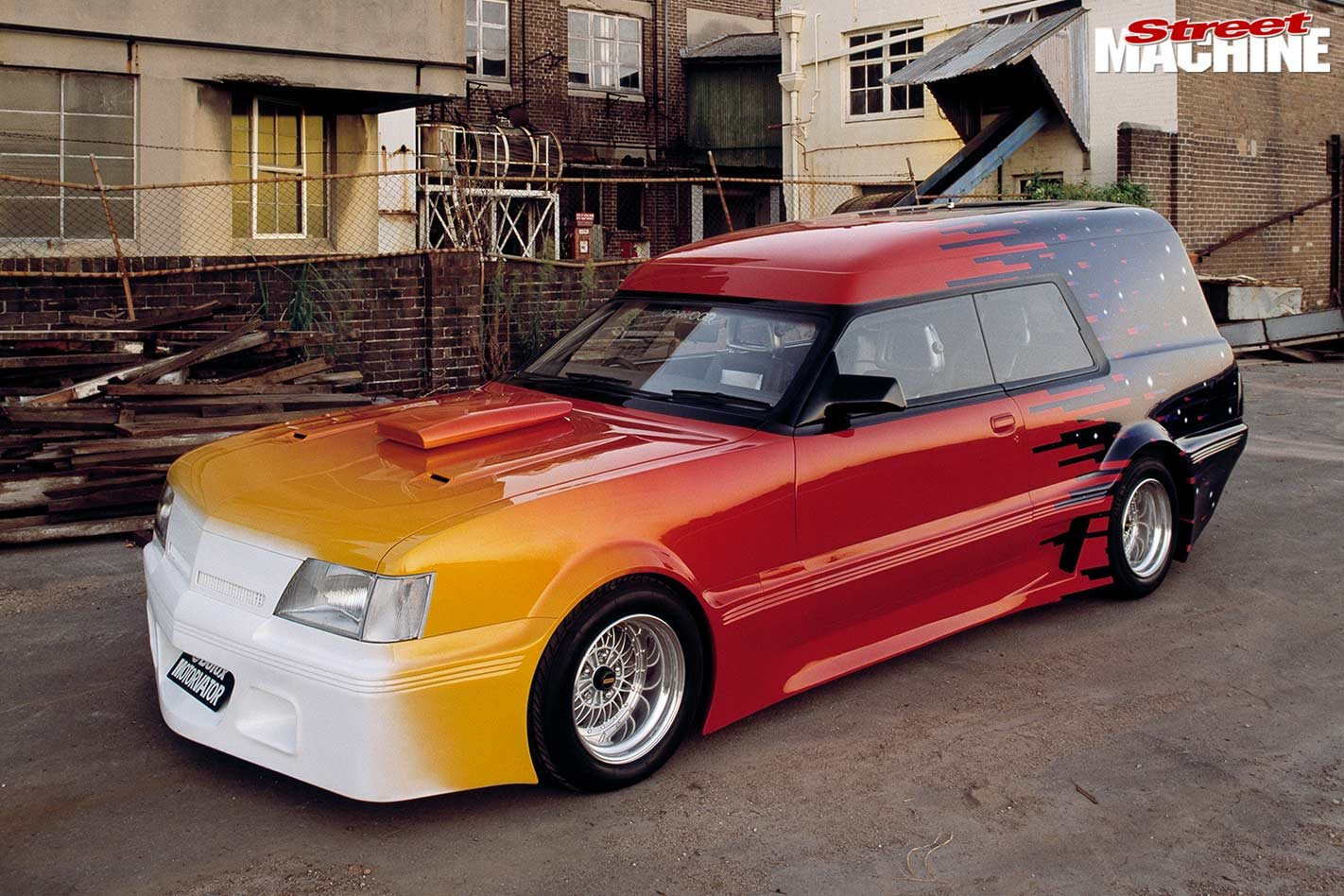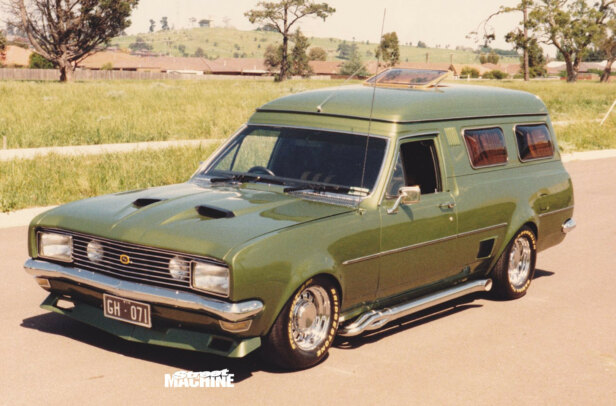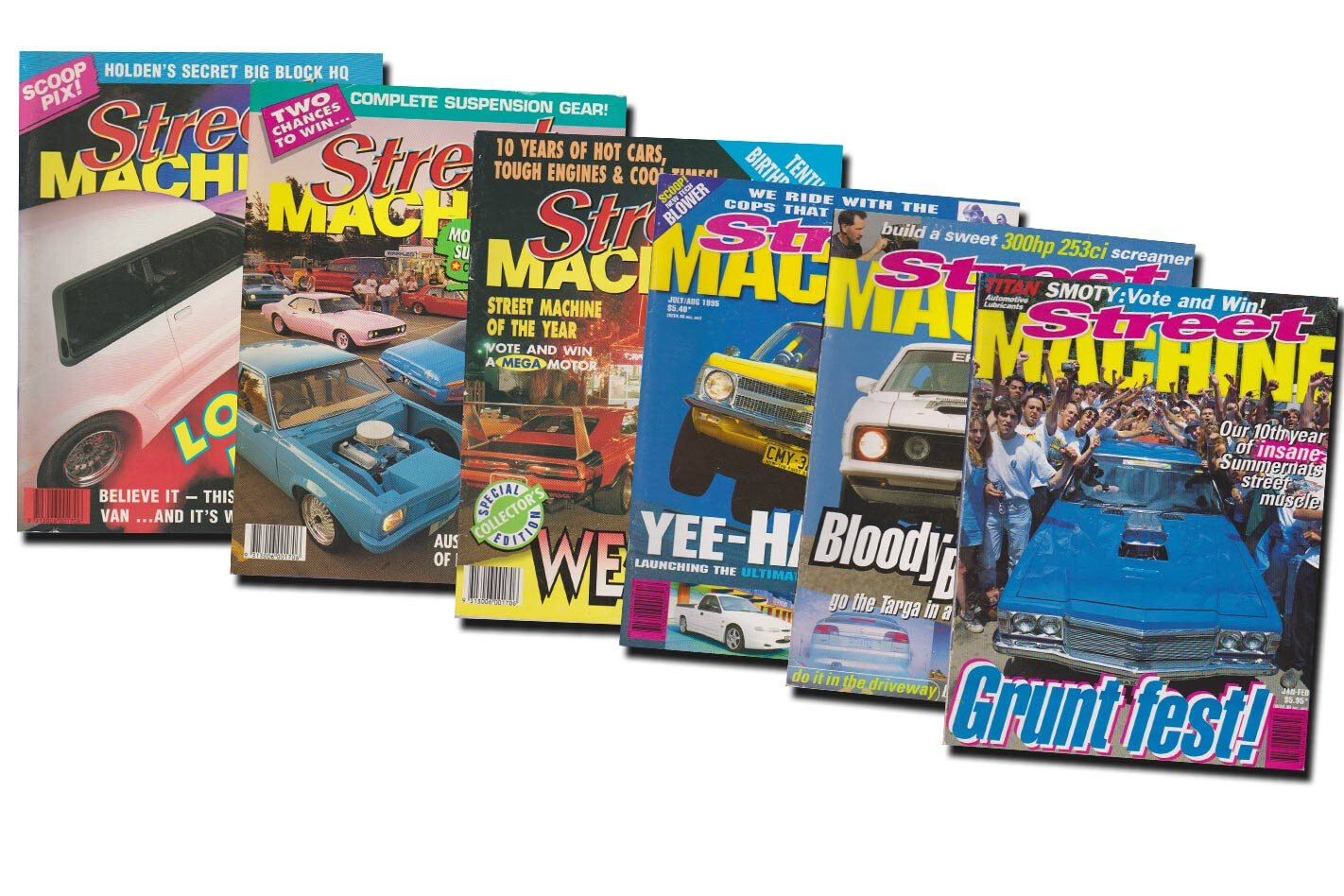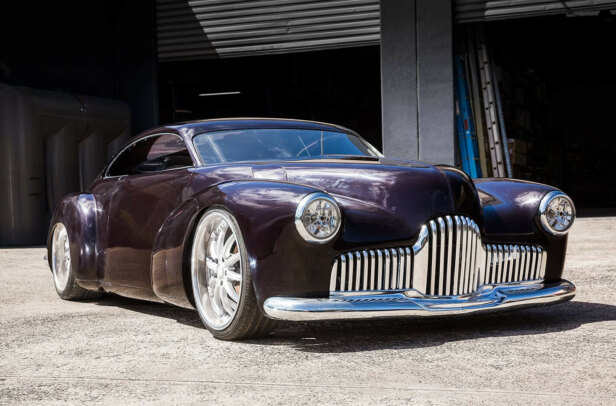THE glory days of the Australian van craze were over by the time Alan Fleming’s ‘Motorvator’ dropped like an alien spacecraft into the Aussie show scene at the start of the 1990s. Pro streeters now ruled the roost, and Alan’s HG van-meets-VK Calais creation had precisely zero in common with those drag-inspired weapons.
This article was first published in the July 2020 issue of Street Machine
Motorvator was the perfect canvas for Dulux’s Autocolor system, with the wild comet-inspired paint scheme masterfully applied by Alan
When the HG appeared on the April/May 1990 cover of SM with the cover line ‘Loony Bin’, the VK front end and tail-lights weren’t the craziest parts of the build. After all, Aussies had been updating their rides with later-model looks for at least a couple of decades by that point. No, what was really wild was the concept, Alan dreaming up a world where Holden built a high-roof sports van as a true 2+2, with long Monaro doors for both style and practicality and extra-long pillarless side glass so the rear passengers could enjoy the view.
It was a great idea – and one that we wish Holden had built – but Alan wanted much more. What he delivered was a concept car, removing all trace of the 1960s styling and producing something akin to a commercial vehicle hyped up to compete in the IMSA GTO ranks of the day. This was achieved by pumping the bodywork out with flares and side skirts to cover wide Simmons rims – 15×10 at the front and 15×12 at the rear – and matching Pirelli rubber.
You could fill a book with the neat tricks Alan employed to contemporise the HG, but suffice to say they included a tapered roof chop, flush-fitting glass, concealed wipers, widened VK bumpers and the insane custom tailgate.
Just as Alan eschewed the sword-and-saucy-maiden murals of the show van era on the outside, he also gave the traditional sin-bin interior a big swerve – four Recaro buckets, grey velour and polished wood gave the inside a much more contemporary vibe.
Alan hasn’t been idle since the heyday of Motorvator. His J-Rod (above) was an audacious concept using late-model Commodore suspension and driveline
And if the van itself wasn’t innovative enough, consider Alan’s approach to securing sponsorship for the HG’s second build, which we featured in SM, June 1991. The first step was his choice of stark white duco for the original build, leaving a blank canvas for any future sponsor. His second was to buy a suit for his meeting with the good folks at Dulux. Alan reckons he never wore it again, but it helped secure a deal that saw the van become the Dulux Motorvator, complete with jaw-dropping multi-colour paintwork.
Alan’s Extra FX model range (above) includes coupe, drop-top and roadster pick-up takes on Australia’s Own – look up his ‘Ffx/ffj’ Facebook page for more info
Alan had plans for big-block Chev power and mega wheel tubs to replace the comparably tame 308 drivetrain; however, he busied himself with his J-Rod and more recent Extra FX FFX/FFJ concepts, so the Motorvator stayed untouched.
But after many years in storage, the van has recently again seen the light of day, now owned by Alan’s nephew Grant Fleming. It is still in remarkably good condition considering the age of the build, and there are plans afoot to revive the van and return it to the public arena. We can’t wait!




Comments